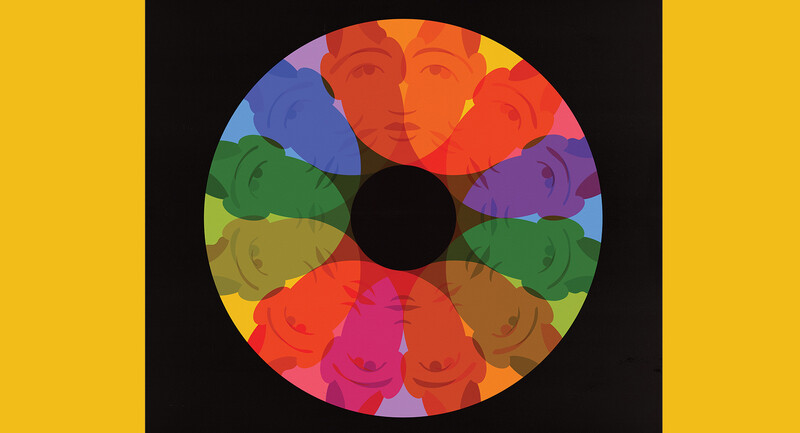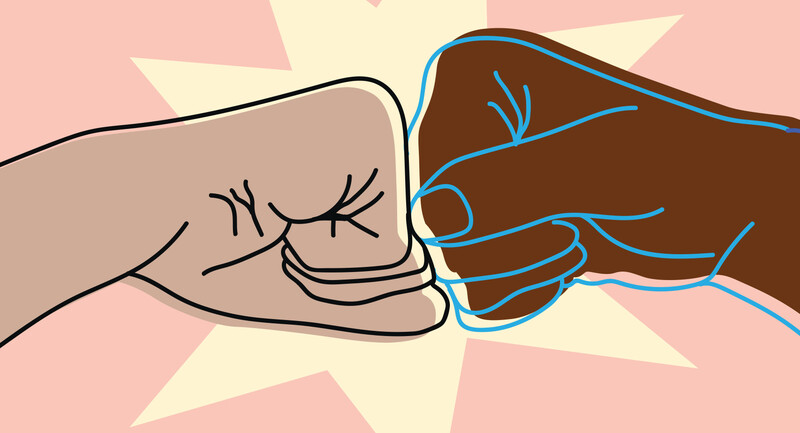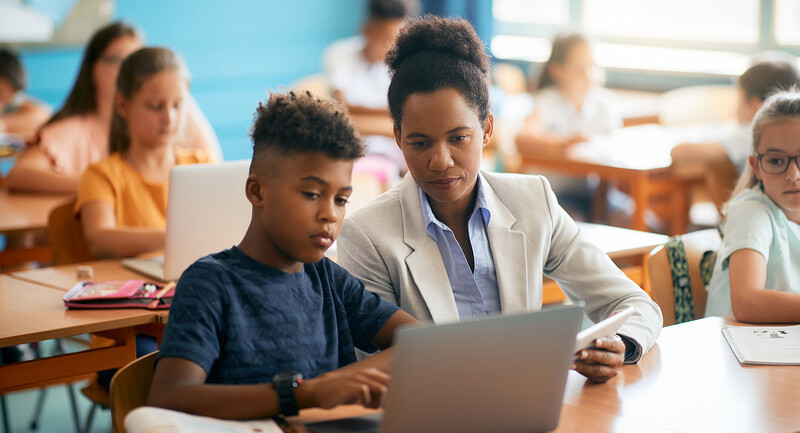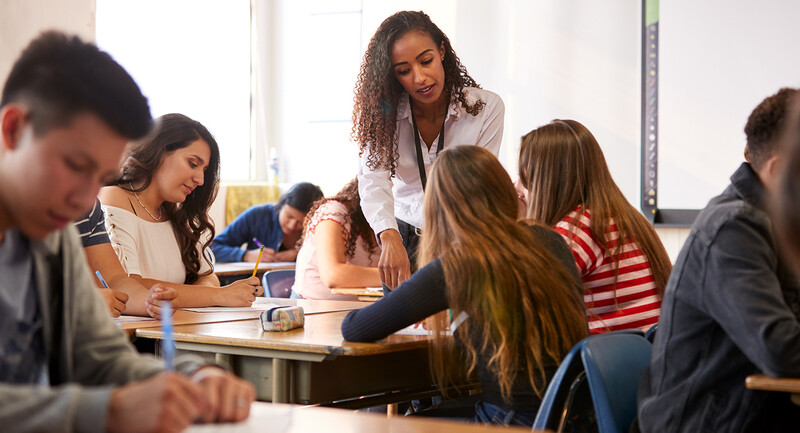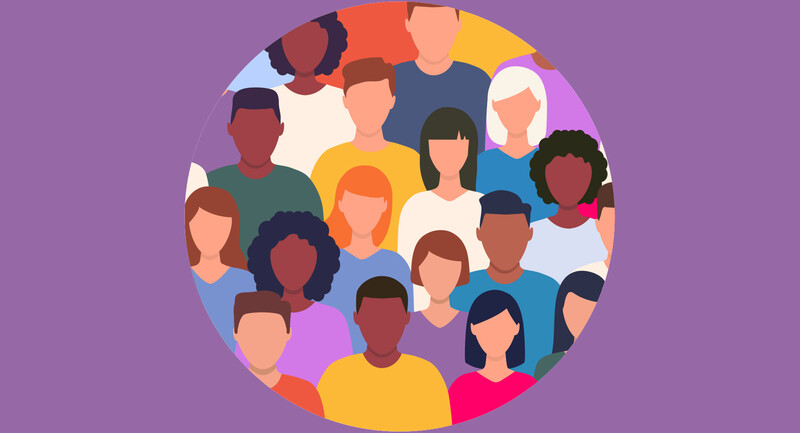Dear Fellow Educator,
It's been an interesting school year, wouldn't you say? I know that it continues to be full of challenges and changes—but hopefully mixed in there somewhere is a great deal of love and learning with your students. If no one has told you lately, let me be the first to say: I see you, and I appreciate your service and dedication to a profession that requires you to show up for children daily, as you help mold them into future leaders.
During the 2020–2021 school year, my world shifted when I made the decision to take a break from the traditional K–12 education setting. As some of you may be aware, I was the director of educational equity and diversity for a prominent school district in the St. Louis region. As the district's highest-ranking Black woman, there were many days when my job felt isolating; I could count the number of BIPOC colleagues I had on two hands. In a district where more than 75 percent of the students are white, being Black made me—and students who looked like me—stand out.
My decision to walk away had a lot to do with the racially motivated scrutiny I was under while serving a community of kids I truly loved. Last school year, somehow creating a space for children to feel welcomed, seen, and loved became politicized. The words equity and inclusion became "fighting" words among those who were unwilling to accept that the world is changing. That teaching real history is vital. That books showing both mirrors and windows for everyone are critical for all learners. And that many educators and students like me are no longer able to accept not seeing reflections of ourselves in the curriculum and learning environment.
All of this to say: I speak from a place of knowing what many of you are up against as you strive to create safe spaces for all kids to thrive and feel seen. I spent the majority of 2021 questioning how I would go on doing the work that I always believed was not only my life's work, but also critical to our future. As I continue to heal and grow, there are some key lessons I want to share.
1. Real equity work isn't cute, easy, or nice.
It's hard and gritty even on its best days. I've cried over my work more often than I'm comfortable admitting. I've been spoken to and about in ways that made me feel undervalued and unseen. In these moments, I have been reminded that being an educated Black woman can sometimes be seen as a threat.
Doing equity work requires that we ask ourselves, "Am I really about this life?"—because "this life" will have us sharing feelings about some of the hardest and most complex issues we face in our society, and "this life" will put us under a microscope. We will have to be uncomfortable, willing to be judged and unliked. But we can find solace by reminding ourselves of all the people before us who chose to be uncomfortable as well. For me, I think of my mother, grandmothers, and great grandmothers—Black women who fearlessly confronted racial and gender inequities during their lifetimes.
Leaning into discomfort is what changes the world. But many of our students and coworkers don't have a choice; they live with discomfort at all times. Let that sink in for a second. Acknowledging the privilege of comfort is part of building empathy.
This idea of leaning in doesn't mean you will ever be ready for the backlash that comes with doing equity work. But don't get lost in the noise. Remember that throughout history, good work has never come without a struggle.
2. Love is the foundation upon which everything should be built.
Cornel West put it best: "Fighting for justice is a sprint and marathon—motivated by love!" It has always been impossible for me to separate equity, empathy, love, and justice. Trying to create an antiracist educational space without those four symbiotic ideals is unrealistic in practice.
Showing up as a smaller version of yourself to make others feel comfortable does nothing to help the greater good.
Brittany Hogan
The love I speak of stretches far beyond the love we, as educators, feel for the children in our classrooms. It is about the love of ourselves, our colleagues, our community, and our love of learning. In a world where there are so many things to care about, it is easy to lose focus and feel overwhelmed. It is OK to care about Black lives, the LGBTQIA+ community, immigrant rights, and inclusive curriculum all at the same time. Just make sure you're turning that care into action. Love is a noun and a verb. It requires meaningful action in areas where we want to have the most impact.
3. This work should never be done in a silo.
Going at it alone will be ineffective and overwhelming, leading to many sleepless nights. As you traverse the often-treacherous terrain of equity work—reading those not-so-nice emails from parents, creating classroom lessons, organizing meaningful professional development, managing your own personal life and activism—remember that you are not alone. There is a whole community of educators in these same trenches. You can find them on Twitter, at PD conferences, writing for Educational Leadership magazine, at the school just a few miles away, and hopefully even down the hall in your own building.
Don't be afraid to reach out and join forces with those who are engaging in the same work. Silence and complacency help no one. Take up space—be yourself, stand in your truth, stand out of judgement, and allow others to do the same. Showing up as a smaller version of yourself to make others feel comfortable does nothing to help the greater good.
Don't let fear hold you back from connecting with others. Real equity work isn't done in one classroom or even one school. We have to be part of intentional communities of change. How are you building this community in your space?
4. There is no room for "performative allyship."
It is useless and problematic. While it's not necessary for someone to have all the answers, to be a good ally, their actions need to match their words. I can't tell you how many times I've had "ally" colleagues retweet me and mention how "vital" my work is, then tell me after a meeting—when no one else is around—how much they appreciated me speaking up when everyone in the room was silent. It's important for everyone to be held accountable. Accountability does not live in silence and complacency. It lives in spaces that allow for transformative conversations and actions around equity. Accountability looks like you having an equitable educational space where all students thrive and feel loved, and where your coworkers aren't standing alone in the face of racial adversity.
Allies, your role goes beyond offering nice words and intentions. It involves everything from speaking up during uncomfortable conversations to doing your own "homework" on what it means to be antiracist and an active defender of marginalized students. Take control of your own learning. Don't be a sideline player. It benefits no one, least of all yourself. Stand by those who are fighting for justice, whether they are smiling or crying. Being an ally isn't a part-time job. It is our responsibility to show up for one another each and every day.
5. Self-evaluation is key.
Being away from "school" this year has allowed me to do some much needed self-reflection. I have always shown up as myself without apology, but this year has led me into spaces where I've been required to take a deeper look at who I am, what I believe in, and how I show up.
Going back into community development work for a nonprofit has reminded me how and why I became a social worker and educator. Community work has always been the foundation for my love of people and being of service to others. Yet it also reminds me of the inequities embedded in society—that the classroom isn't the only flawed space we inhabit. Community work, for me, is a humbling reminder that there is much to do in and outside of the school system for the sake of the children. That what's happening in education is just a reflection of what's happening in our neighborhoods, cities, states, and our country.
Looking back, I've found fault in some of the systems I used to align with. I should have asked more questions when I thought I was invited to the table to come up with solutions. I was silent for fear of the responses I might get from speaking out. I worried that saying too much would lead to not being invited back to the table where decisions were being made, and that that would impact the children I held so closely to my heart. Such fear can be paralyzing.
I've spent the past few months reconnecting to love and the core ideals that led me to the work of creating and supporting equitable educational spaces. I've realigned with the words of people like Nina Simone, who said:
What I hope to do all the time is to be so completely myself . . . that my audiences and even people who meet me are confronted . . . with what I am inside and out, as honest as I can be. And this way they have to see things about themselves.
I hope that putting forth the effort to show up as my complete and true self inspires others to do the same. Self-reflection and equity work have one major thing in common: they're a journey, not a destination. I will never be a "perfect" person or a "perfect" equity-focused educator. But what I will be is one who continues to learn and reflect, to acknowledge and address my own bias and flaws.
Without self-reflection, we have no business doing equity work. There is no room for those who spend time telling others how to be better but spend no time working on themselves. We have all taken part in a system that has created harm for our most vulnerable members of society. There is some ownership we all must take in that reality. The real question of self-reflection becomes, will you continue to add to the harm or will you help repair it through your actions? After all, we can't expect others to be honest with us if we aren't honest with ourselves.
6. You must be kind to yourself.
I realized that, like many educators, I was not extending the grace to myself that I extended to my students and colleagues. I've learned that real self-evaluation is part of self-care. During the school year, there are many times that we go through the motions, counting down the days between breaks and testing. And we wind up forgetting the professional and personal principles we stand on as educators.
For me, those principles of equity, empathy, love, and justice remain steadfast. Even when I've been upset, felt alone, and wondered why I love education so much—I'm always led back to those four ideals. At this point, you should be questioning what your ideals are and making sure you give yourself space to get rooted in them as you do that "inner educator" work.
7. This is not a passing phase.
Throughout the history of the American education system, we have seen inequities persist—through funding, access, segregation, and now through the intentional removal of literature and silencing of diverse voices in the curriculum. We must ask ourselves: Whose stories do we value enough to be told? If you think this is just a brief period of upheaval and that things will naturally sort themselves out, you are denying the ever presence of white supremacy. We have work to do. Black Lives Matter. We need your voice, talent, and action. Let my story and those of your fellow educators be your call to action.
P.S. With Love …
Reconnect with yourself. Remember why you fell in love with being an educator. Remind yourself that rest is a form of resistance. And most importantly, show up in the name of equity, empathy, love, and justice. Take care of yourself, the children in your care, and each other. Love is the anchor that will hold you steady.
If you get to the end of this letter and feel like you are doing all these things already, pass this on to someone who you know needs a reminder. I'll be over here rooting for you and them.
Love, An Empathetic Educator





